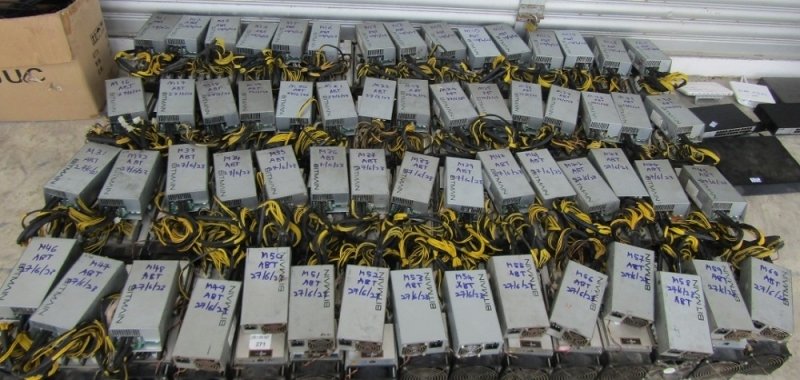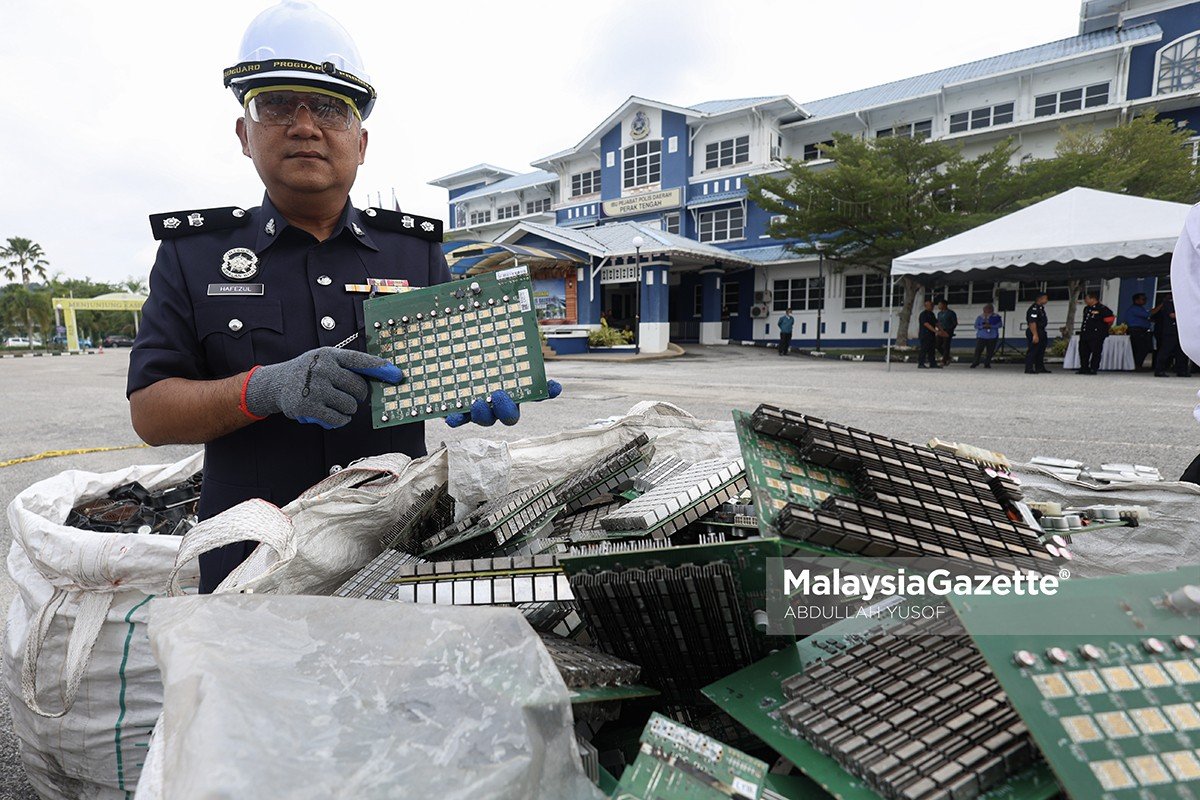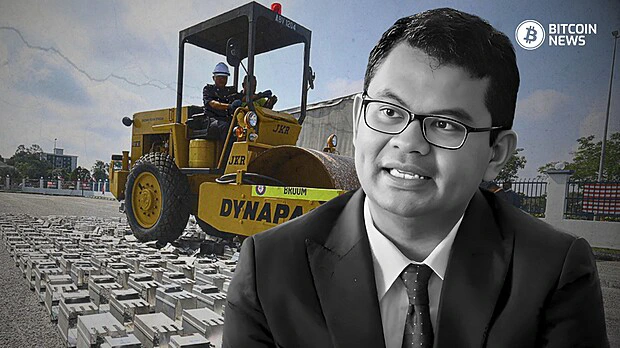In recent months, Malaysia has stepped up its efforts to combat illegal Bitcoin mining, especially those operations involved in electricity theft.
A recent initiative by Malaysia police led to the arrest of seven individuals and the destruction of hundreds of thousands of dollars worth of mining equipment.
The country has seen a surge in Bitcoin mining operations, largely due to the relatively low cost of electricity. However, this has come at a significant cost, with power theft linked to these activities becoming a major concern for authorities.
Bitcoin mining, the process by which new bitcoin are introduced into circulation, requires substantial amounts of electricity to power the necessary computing equipment.
As bitcoin’s value has increased, so too has the competition among miners to obtain cheap electricity, often leading to illegal methods to cut costs. In Malaysia, this issue has reached alarming levels, prompting a series of enforcement actions by local authorities.
Since 2018, Bitcoin miners in Malaysia have reportedly stolen electricity worth an estimated RM3.4 billion (approximately $777 million). This figure underscores the scale of the problem and the urgency with which Malaysian authorities have had to act.
In a significant breakthrough, Malaysian authorities recently arrested seven individuals suspected of involvement in illegal Bitcoin mining operations that relied on stolen electricity.
These arrests were made during a special enforcement operation conducted last week, as reported by various local news outlets.
The suspects, who include three Malaysian citizens and four foreign nationals, were detained separately. The Sepang District Police Chief, ACP Wan Kamarul Azran Wan Yusof, confirmed that these individuals had no prior criminal records. Kamarul stated:
“Our primary objective was to detect and stop illegal Bitcoin mining activities that involve electricity theft.”

The arrests also led to the seizure of 52 Bitcoin mining rigs and other electronic devices, with an estimated total value of RM250,000 (about $57,000).
These operations are part of a broader strategy to curb power theft linked to Bitcoin mining, a problem that has plagued the country for years. Following the arrests, Malaysian authorities took the extraordinary step of destroying the seized Bitcoin mining equipment.
On Monday, the Perak Tengah District police, located in the state of Perak, used a steamroller to crush 985 Bitcoin mining machines that had been confiscated in various raids since 2022. The destroyed equipment was valued at approximately $450,000.
This dramatic method of disposal is not unprecedented in Malaysia.
In 2021, police in the city of Miri, in Sarawak state, similarly destroyed over 1,000 Bitcoin mining machines. The decision to crush the equipment is part of a broader effort to send a strong message to those involved in illegal mining activities.
The destruction of the equipment was carried out after receiving authorization from the court. Perak Tengah District Police Chief, Superintendent Hafezul Helmi Hamzah explained:
“The disposal of these items was conducted according to scheduled waste disposal methods under the Environmental Quality Regulations of 2005.”
He added that the process was overseen by a licensed agent registered with the Department of Environment, ensuring that the disposal adhered to all relevant guidelines and environmental standards.

The crackdown on illegal Bitcoin mining is part of a larger initiative to address the broader issue of electricity theft in Malaysia.
This initiative has been spearheaded by the country’s Deputy Minister of Energy and Natural Resources, Akmal Nasrullah Mohd Nasir, who has been vocal about the impact of electricity theft on the national grid and the economy.
The staggering loss of over $700 million from stolen electricity has prompted a more aggressive approach by law enforcement and energy authorities in dealing with illegal mining activities.
The suspects arrested in the recent raids face serious charges under Malaysian law. They have been accused of criminal mischief, stealing electricity, and violating immigration permit regulations.
The case is being investigated under Section 427 of the Penal Code and Section 37(1) of the Electricity Supply Act 1990, both of which carry severe penalties, including hefty fines and potential imprisonment.
The issue of illegal Bitcoin mining and electricity theft is not unique to Malaysia. Countries across Southeast Asia, including Indonesia, Laos, and Thailand, have also seen a rise in illegal mining activities as operations shift from China, which banned Bitcoin mining in 2021.
Related: Venezuela Cracks Down on Bitcoin Mining to Protect Power Grid
These countries are attractive to miners due to their relatively low electricity costs, skilled labor, and existing infrastructure.
However, the benefits to miners come at a significant cost to these nations. The strain on the electrical grid, the financial losses incurred by energy providers, and the environmental impact of these activities are all serious concerns.
In Malaysia, for example, the energy lost to illegal mining could have powered thousands of homes, contributing to the overall stability of the national grid.
The Malaysian government has made it clear that it will continue to crack down on illegal mining activities. The recent enforcement actions are part of a broader strategy to ensure that the country’s energy resources are not exploited by illegal operators.
Authorities have also emphasized the importance of public cooperation in combating electricity theft. They have urged citizens to report any suspicious activities related to Bitcoin mining, promising confidentiality and protection for whistleblowers.
This approach is crucial, as illegal mining operations are often well-hidden, making it difficult for authorities to detect them without help from the public.
In addition to enforcement actions, there are calls for stronger regulatory frameworks to govern Bitcoin mining. By establishing clear guidelines and penalties for illegal activities, the government hopes to deter future incidents and protect the integrity of the national energy supply.










